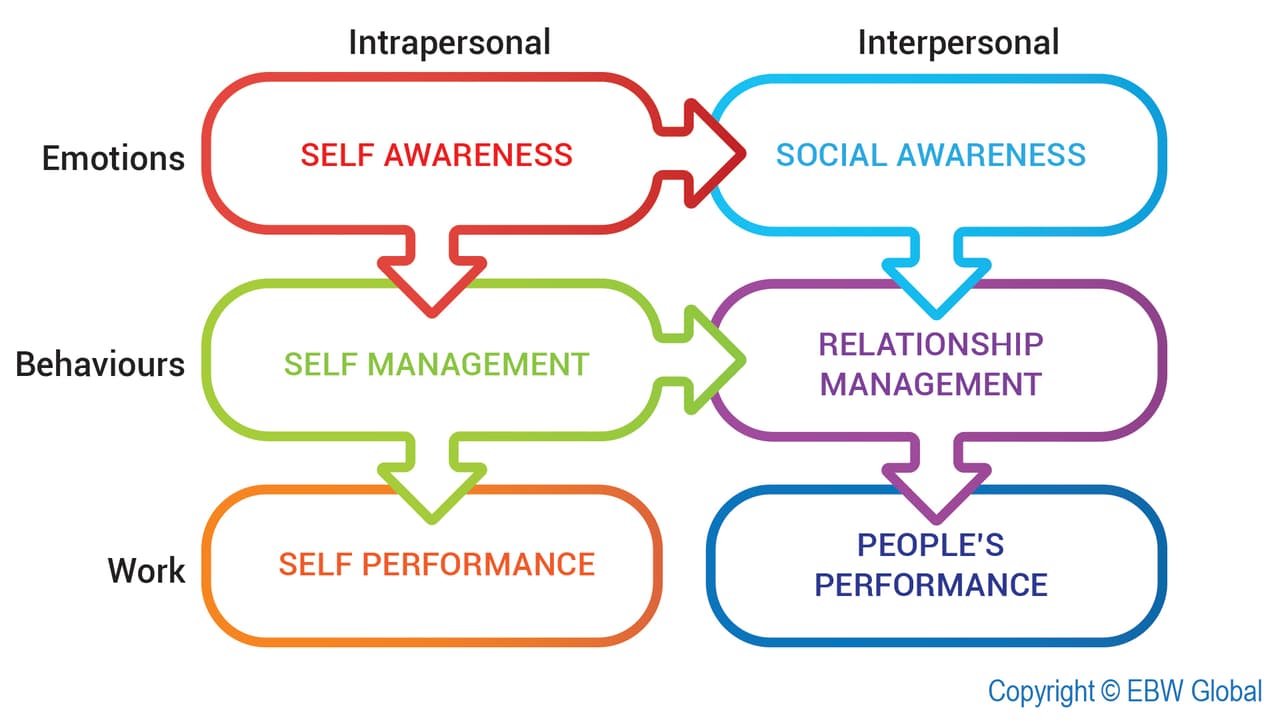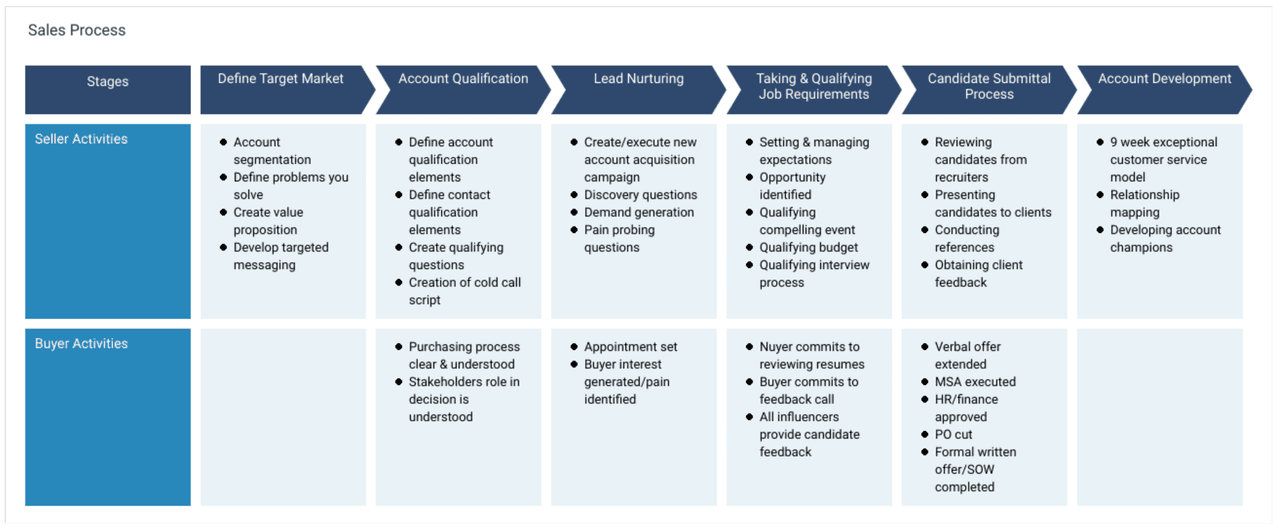Sales Leadership: Top Qualities & Habits of the Best Sales Leaders
Casey O'Connor
Sales leadership is a challenging and often undervalued field. Sales leaders typically get little credit when things go well, yet take the brunt of the blame when things go poorly.
Despite its “man behind the curtain” setup, effective sales leadership represents one of the biggest driving forces behind nearly all successful sales teams. Great sales leadership can make the difference between a mediocre sales organization and an outstanding one. On the other hand, poor leadership can tank even the most talented sales teams’ efforts.
In this article, we’ll go over the specific things that make a sales leader one of the great ones — and what exactly to steer clear of, too.
Here’s what we’ll cover:
- What Is Sales Leadership?
- Sales Leadership vs Sales Management
- What to Look For When Hiring a Sales Leader
- The Top 10 Qualities of Great Sales Leadership
- Red Flags to Avoid When Hiring a Sales Leader
- How to Become a Sales Leader in 2022
What Is Sales Leadership?
Sales leadership means different specific things to different organizations. A sales leader can hold a variety of roles or positions within the sales team and may perform a number of different duties.
In general, a sales leader is responsible for overseeing and managing the sales process in a way that drives the company toward greater success.
The definition of sales leadership, though, is far more than just their day-to-day job description.
A sales leader is much less their job title and much more their vision, their strategy, their attitude, and their ability to guide and direct the people around them. Especially through the various ups and downs, triumphs, and challenges that occur throughout the sales process.
Sales leadership requires the ability to make strategic, big-picture decisions that drive the company forward, without losing sight of what makes individual salespeople — as well as the sales team as a whole — put their best foot forward with each and every interaction.
Sales Leadership vs Sales Management
There are a number of differences between sales leadership and sales management. Many of them are tangible, but many are also nuanced and subjective.
Sales management is responsible for optimizing the day-to-day operations that keep the sales team moving. Things like hiring, onboarding and training, sales forecasting, and allocating resources to meet quotas, benchmarks, and goals.
Sales leadership is a bit more complex.
It’s true that there’s an obvious difference in the job responsibilities: while sales managers are responsible for day-to-day orders of operation, sales leaders envision and orchestrate the “big picture” goals and strategies.
Sales leadership also requires certain characteristics of those in the position. Sales leaders need to be empathetic, innovative, and inspiring. It is their responsibility to motivate the sales team to maximize their sales performance.
What to Look For When Hiring a Sales Leader
Let’s get one thing out of the way upfront: not all great sales reps are built or trained to become great sales leaders.
Sales and sales leadership do have some skill overlap, but each role also requires different and separate skills in order to be successful.

Despite the majority of focus and attention going to salespeople — where their time is spent, how they perform, and how well they connect with prospects — sales managers and leaders are actually the most important people on your sales team.
Sales leaders are responsible for hiring, managing, and moving forward the entire organization, and their decisions and planning methods are directly responsible for how sales reps contribute to the bottom line.
In other words, the quality of the organization as a whole is directly related to the quality of the leadership leading the way.
Many companies make the mistake when searching for a sales leader of focusing too much on people skills, or too much on analytical skills.
The truth is that most sales managers worth their salt are proficient in both of these areas, and relying too much on one or the other will lead to a mismanaged salesforce. No matter their individual leadership style, all successful sales leaders need to be able to balance both the relationships and the numbers.
The Top 10 Qualities of Great Sales Leadership
Nearly three-quarters of sales leaders do not receive the sales training they need in order to be fully successful. It can certainly be difficult to weed through a pool of leadership applicants without knowing the leadership qualities that move the needle the most.
If you’re currently evaluating whether your sales leadership is effective enough, the following management skills can act as your “North Star” in determining whether your leadership is effective for the sales culture and sales performance at your company.
1. Gives Feedback (the Right Way)
Effective sales leaders know that taking the initiative to offer immediate, specific, and constructive feedback is one of the most impactful leadership skills they have to offer.
Feedback should be both reinforcing and constructive, and as immediate and actionable as possible. It should be provided in a way that educates, celebrates, and motivates sales professionals.

Sales feedback should include tactical and logistical components (“Hey Jim, have you noticed your sales calls running a little long lately? How can we shave some time off to free up some bandwidth for you?”), as well as broader and overarching ones (“I’ve noticed you coming in earlier this month — I wanted to let you know that it’s making a difference in your attainment rate, and the team and I appreciate the effort.”).
Ultimately, leaders should assume a role of sales coaching; this will allow sales reps to maintain ownership and control over their own behavior and outcomes.
2. Makes Time for One-on-Ones
One thing all great sales managers have in common is that they prioritize one-on-one time with each and every one of their team members.
Ideally, these kinds of meetings will happen on a weekly basis, though timing may depend on how large your salesforce is. Regardless, sales management should work to make sure this is a recurring and predictable component of the sales experience at your company.
Be careful with this kind of meeting, though. Despite the results-driven atmosphere of most sales organizations, having a weekly meeting to discuss performance and only performance can quickly lead to burnout.
Instead, people in sales leadership roles should use this time to deepen their relationships with individual reps. The key is to get to know the person behind the sales — learn both their professional talents and their personal passions. Ask about their families and hobbies. Share some of the same about yourself.
This kind of regularly scheduled engagement will quickly create a culture of mutual trust and respect, which has direct impacts on performance.

Tip: We’ve compiled the most effective strategies for sales leaders to have weekly one-on-one meetings with members of their team.
 How Sales Managers Can Maximize 1:1 Meetings (Backed by Data)Proven strategies for 1:1 meetings that’ll give reps confidence in their day-to-day and drive higher revenue across the team.
How Sales Managers Can Maximize 1:1 Meetings (Backed by Data)Proven strategies for 1:1 meetings that’ll give reps confidence in their day-to-day and drive higher revenue across the team.
3. Knows That Numbers Matter…
It’s no secret that sales is a numbers game. Truthfully, many c-suite executives don’t give too much extra thought to what goes on in sales, as long as targets are being met.
That’s why it’s up to sales leadership to make sure the machine is fully optimized.
Sales management should aim to follow the SMART goal framework to create and track sales goals that will move the business forward.

SMART goals are designed to set your team up for success. They also make the process of tracking metrics — and, ultimately, the sales process itself — more efficient and optimized.
4. …But the Person Matters More
With that in mind, it’s also important that sales leaders not get too hung up on granular data. Sales coaching is a marathon, not a sprint, and a coach should be choosy about which data to harp on and when.
Instead, look for sales leaders who take a more holistic approach to management. The GROW coaching model, for example, is one of the most effective ones on the market. It addresses goals at higher levels, but then spends time digging into any potential obstacles a rep may encounter, as well as action-oriented steps around them.

Demanding that targets be crushed without any thought to the person responsible for meeting them is a recipe for disaster.
5. Focuses On Strengths
One surefire way to improve your team’s selling skills across the board is to focus on their strengths. Most people respond better to positive reinforcement than to constructive criticism.
There’s data to back this up. Top performers typically experience a 6:1 ratio of positive to negative feedback.
Still, sometimes a situation calls for some tough love. Effective sales leaders know how to reframe constructive criticism into a more palatable experience. One way to do this is through a method known as a Compliment Sandwich.

This is a common tactic, and it’s likely that your sales reps will spot it from a mile away. It’s important to do it the right way: with genuineness and positivity.
Don’t offer a compliment or highlight a strength just for the sake of getting to the criticism. The best sales leaders are authentic in seeking out their team’s strengths and using them to transform areas of growth.
6. Demonstrates Emotional Intelligence
Sales leaders typically have a very high emotional intelligence quotient (EQ). They know how to read people and connect with them in order to target certain behaviors and generate results.
Emotional intelligence is something of a buzzword these days, but it has specific look-fors in a business context.

To be clear, business EQ isn’t just about “being nice” or noticing when someone is having an off day. It’s about recognizing and balancing the unique emotions that crop up in a business context, and using them to your team’s advantage.
7. Knows How to Find and Hire Top Talent
Sales management is about more than managing the current employees on your team. It’s also about finding and attracting top performers when your team is in need.
With 69% of companies struggling to fill positions, it’s critically important that sales leaders can sift through the noise and avoid hiring for the sake of hiring.

It’s up to the sales leader to design a compensation package to attract only the best-fit reps that will elevate your team.
8. Invests Into the Process
As we’ve mentioned, sales can sometimes be too heavily focused on results. One thing that all great sales managers recognize is the importance of the process that produces those results.
Great sales leaders should show initiative in defining and refining the sales process until it runs like a well-oiled machine. Creating a sales process map is a valuable and worthwhile exercise that all sales managers should consider.

One quick note: truly exceptional sales leaders respect and honor the process, but can also be flexible if the need arises.
9. Growth Mindset
One of the more nuanced aspects of a great sales leader is a growth mindset.

A fixed mindset indicates reluctance toward growth or change. Given how rapidly the sales landscape changes in today’s technological age, a fixed mindset will do nothing but hold your sales team back.
A growth mindset, on the other hand, will foster a culture of learning and continuous desire for and initiative toward improvement.
Tip: Learn more about adaptive leadership here.
10. Gives Credit and Takes Blame
One of the most thankless and nuanced traits of a great sales leader is that they are quick to give credit to their team when things go well, and quick to take responsibility when things aren’t quite up to snuff.
This dichotomy is subtle, but can have dramatic impacts on a leader’s relationship with their team, and their ability to drive results.

Arnold Glasgow, famed businessman and author, said it best: “A good leader takes a little more than his share of the blame, a little less than his share of the credit.”
Red Flags to Avoid When Hiring a Sales Leader
While searching for the best-fit sales leader for your team can be challenging, there are some hard-line red flags to look for that will quickly eliminate potentially toxic applicants from your consideration.
Power Tripping
If you get the sense that an applicant is eager to hold authority over others, run far in the other direction.
Take time to solicit feedback from applicants’ former employers and coworkers. If any of the following show up consistently across their reviews, it’s time to move to the next.

Sales leadership does afford some authority, but it should be exercised with the utmost respect and caution.
Focusing On External Rather Than Internal
A great sales leader knows that effective change starts from the inside.
If your sales leader is hyper-focused on hiring outsiders, or obsessed with head-hunting “top talent,” they may not have your organization’s true best interest at heart.
Studies show that a 5% improvement in the middle 60% of a sales team can produce a 70% increase in revenue. There are very, very few “top performers” who can accomplish that on their own, regardless of how hard a sales leader works to attract them.
Great leaders transform from the inside first, add from the outside later.
Forcing Specific Methodology
It’s perfectly fine for sales reps and even managers to have their preferred style of selling. That being said, it’s not a sales manager’s job to force their preference on the rest of the team.
Your sales process should consist of the methodology (or a blend of several) that has been proven to convert best with your customer base.
Too Heavy on Numbers or People
As we discussed, great sales leadership is a delicate balance of respecting the numbers and respecting the people. One major red flag in sales leadership is too much attention paid to one or the other.
Too much emphasis on numbers will quickly de-motivate your reps and make them feel like they’re simply a means to an end. On the other hand, too much focus on the people may leave much to be desired in terms of results. Great sales leaders know how to balance both.
How to Become a Sales Leader in 2022
To become a sales leader in a 2022 sales world, it’s important to understand the way the field has shifted over the past two decades.
Sales leaders need to do more than just exceed quota; they need to provide vision and strategy for achieving outstanding success to their organization. Every decision that a sales leader makes should be made from the lens of benefiting the sales team or the sales process.
It’s important to remember that not every top-performing sales rep will become a great sales leader. Far from it, in fact — sales leadership is represented by salespeople in a variety of sales positions. Although sales leadership is not dictated by achievement, it does require a different set of skills and personality traits.
Here is how to approach your career in order to develop sales leadership skills.
1. Reflect on Your Experience to Date
Take stock of the accomplishments and challenges you’ve experienced thus far in your career. What lesson stuck with you the most? What was the hardest learned? What habits are you sticking to when you’re exceeding quota?
Revisit these thoughts several times over a period of time. Take note of what stands out to you as you reflect on your sales career to this point. This will guide you in creating a vision for how you will lead yourself and those around you.
Remember, a sales leader has a constant eye toward improving the sales process and sales automation.
2. Develop Leadership Skills and Traits
Work hard to lean into the qualities outlined in this article. Most of them are easy to apply and practice in everyday sales scenarios but don’t forget to seek out training, seminars, or literature in these topics, as well.
Be mindful of how and when you practice exhibiting leadership. There is a fine line between confidence and arrogance — leaders walk it well. Look for opportunities to shine as you become more self-assured in your leadership presence.
3. Find a Mentor
This part is easy — think of the top 3 most influential salespeople in your life, and contact them today to ask them to consider becoming your mentor.
Chances are high that anyone who immediately comes to mind is a top-notch sales leader.
4. Make Yourself Known
Leaders are humble, but they’re not shy about setting goals.
If you’re working to become a sales leader, let the people around you know. Seek out opportunities to take more responsibility — and then execute it really well.
Put in extra hours. Attend the workshops. Apply the training. Go above and beyond for the sake of it. This is how sales leaders are made.
Get sales tips and strategies delivered straight to your inbox.
Yesware will help you generate more sales right from your inbox. Try our Outlook add-on or Gmail Chrome extension for free, forever!
Related Articles
Casey O'Connor
Casey O'Connor
Casey O'Connor
Sales, deal management, and communication tips for your inbox

